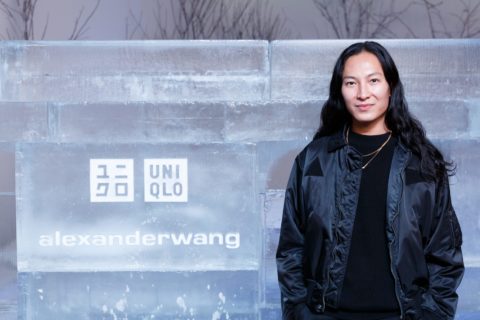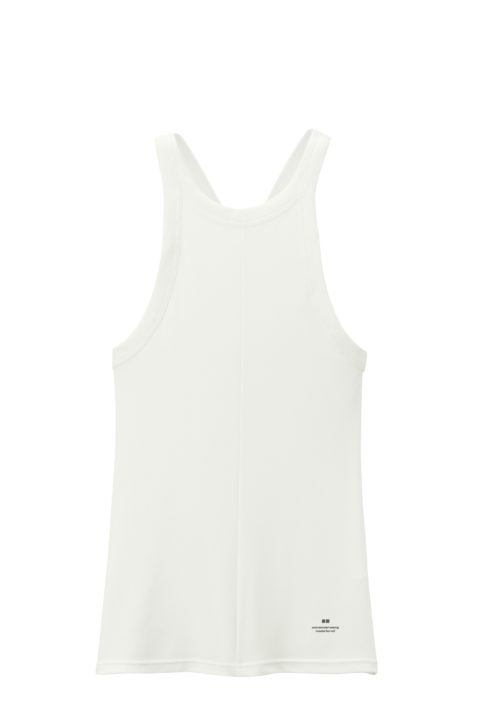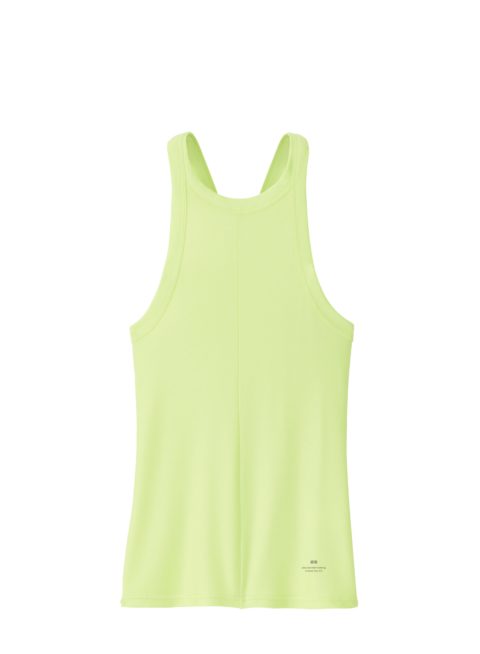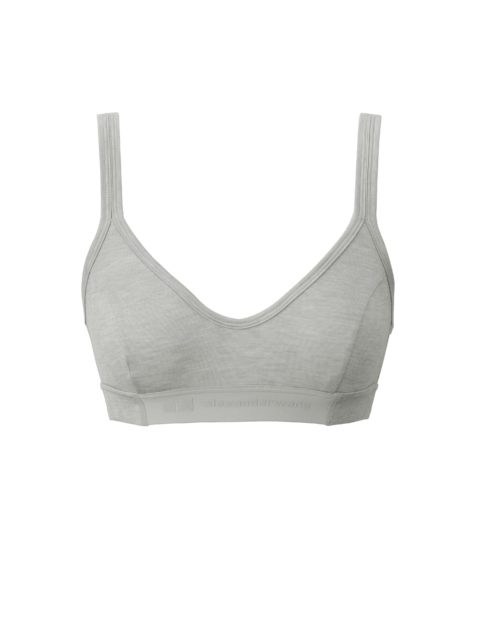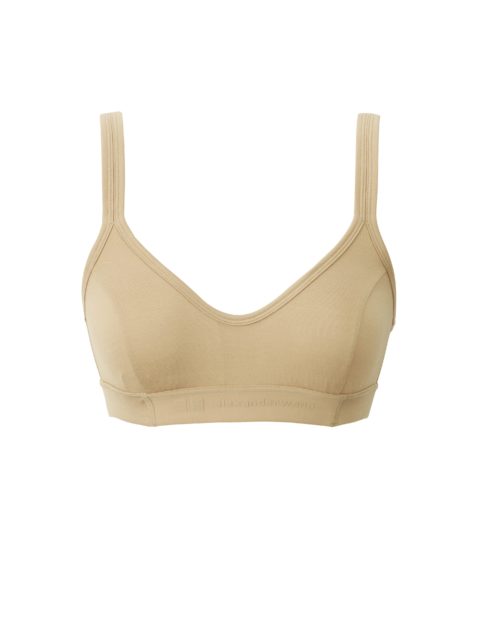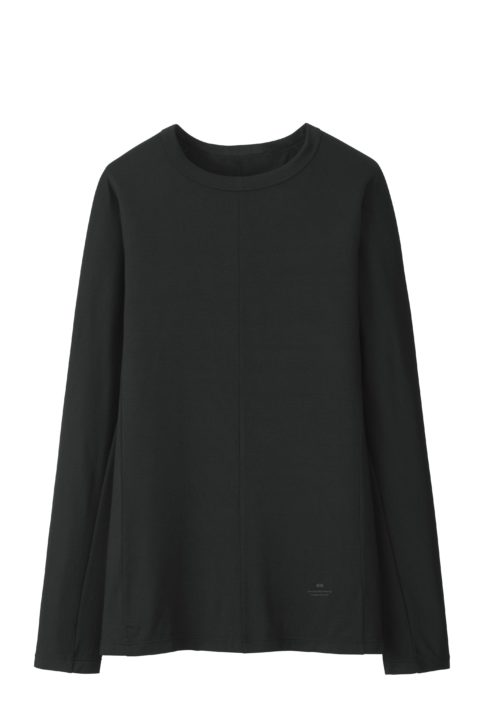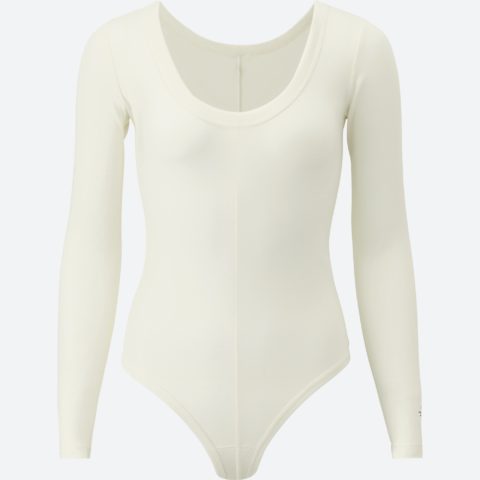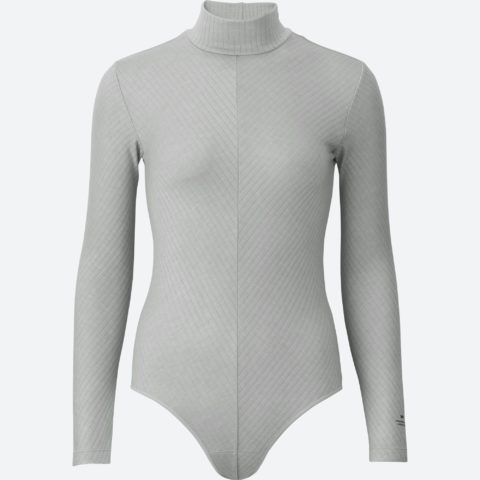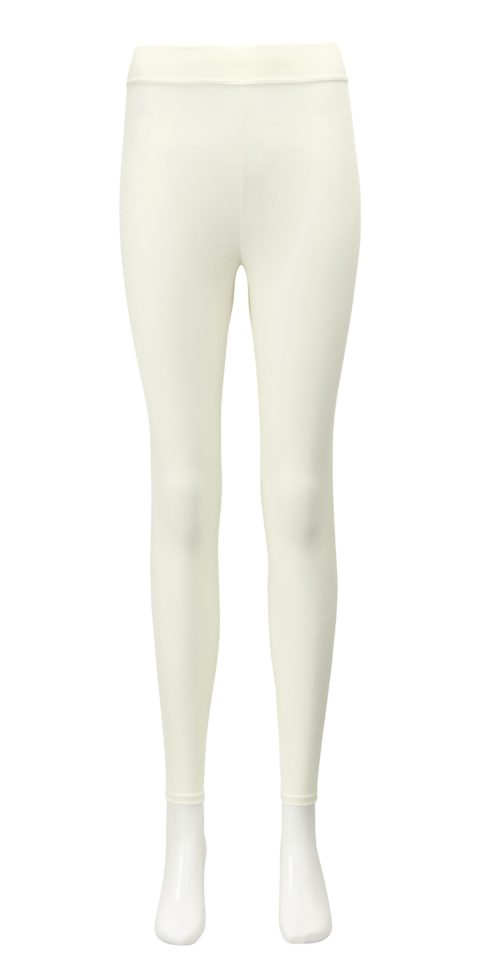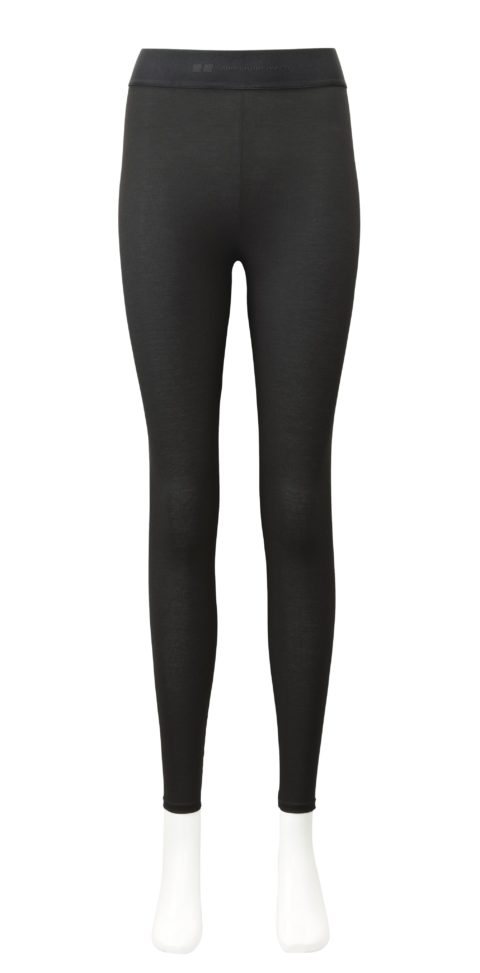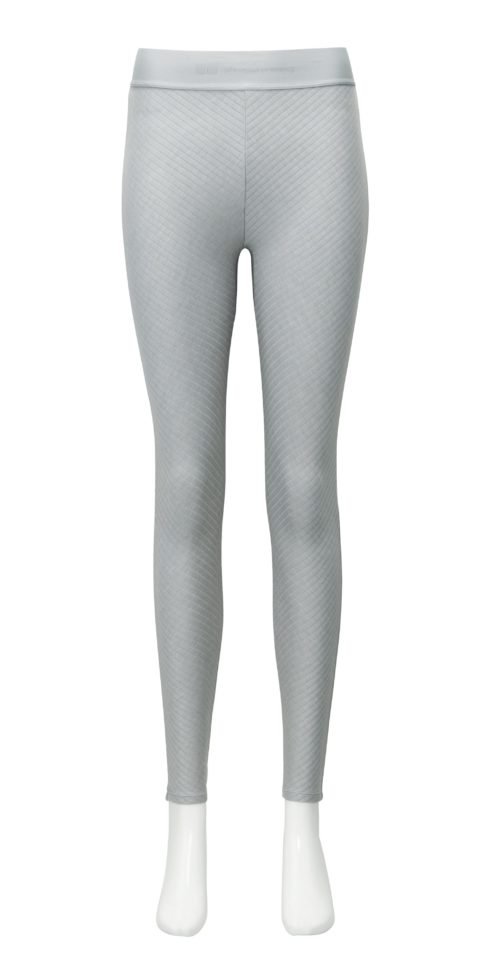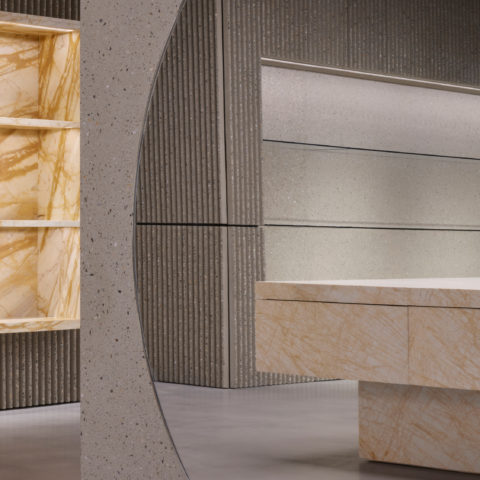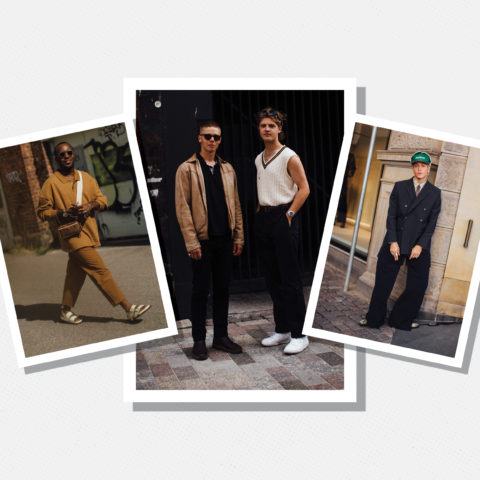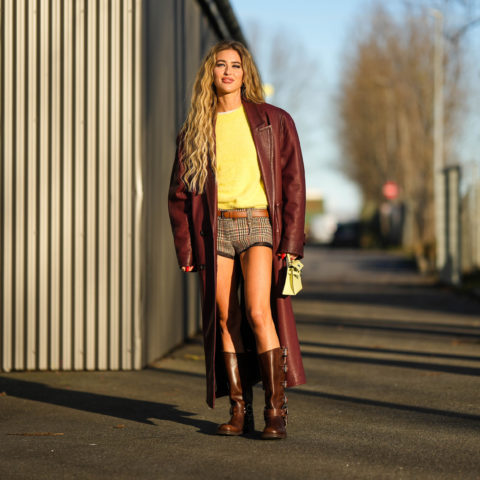Alexander Wang on His Evolution from Downtown Party Kid to Mature Designer
"Having a different purpose besides just making clothes and making product is incredibly important."
It’s the launch day of Alexander Wang’s much-anticipated collaboration with Uniqlo and there are dozens of journalists from all the world packed into a room in downtown Manhattan to preview the line and interview Wang, but what the 34-year-old designer seems to be most preoccupied with is the fact that no one’s eating the Sno Cones.
“They’re so good!” Wang urges, surveying the room and seeing all the reporters sans cone. “Coconut ice!”
Sno Cones may seem like an odd choice of party snack but they’re there with good reason. It’s because the line we’re all here to see is Wang’s take on the Japanese retailer’s massively successful HeatTech range of innerwear. The proprietary fabric is beloved for its heat-retaining properties, all while maintaining its second-skin airiness. Its ability to help wearers withstand even the most brutal icy climes is why the space we’re in is kitted out with blocks of ice, fake snow and yep, Sno Cones.
Wang, the first designer Uniqlo has partnered with on their HeatTech range, brought his signature streetwear sensibility to the collaboration, giving the modest items—long-sleeved shirts, leggings, underwear, bodysuits—a ribbed texture and deft seam work. The line comes in an array of neutrals (black, beige, grey, white) along with a wildcard entry in the form of neon green.
“Underwear, innerwear, intimates, that whole space hasn’t really been disrupted for a very long time and I saw an opportunity with Uniqlo to say something different in that space,” says Wang. “I didn’t want people to think that this was something that could only be worn under a certain context and so we really tried to push this concept of lifewear. There’s pieces in there that I see girls wearing to the club, wearing just walking down the street, wearing to work with a blazer over it. It’s so versatile. There’s enough opaqueness that you could wear it on its own but you can also throw it on under something. I love the bodysuits, I love the little sports bras. I call it couch-to-club. You wear it on your couch, you get a call and you’re ready to go out. That’s the mentality.”
This actually isn’t Wang’s first collaboration with the Uniqlo. Just a year after he launched his eponymous label — and the same year he won the coveted CFDA/Vogue Fashion Fund Award — he designed a capsule collection of five dresses for the brand, one of which Uniqlo’s Head of Research and Development, Yukihiro Katsuta, pipes in to say his daughter still wears to this day.
A lot has happened in the decade since then. Wang has undertaken collaborations with other brands like adidas and H&M, expanded into menswear, launched a second line called T by Alexander Wang, and even held the position of creative director at Balenciaga for three years (from 2012 to 2015). Spring 2019, his most recent collection, takes inspiration from the immigrant experience in America (his parents are from Taiwan), something he’d never explored in his work before. According to the note cards placed at his runway show, the collection signalled “a new beginning, a new identity” for his brand. So looking back, in what ways does Wang think he’s changed as a designer and a creative individual in those intervening ten years?
“I’ve gotten a few grey hairs,” he laughs. “Throughout my own career, from when I started, even the last couple of seasons I’ve felt that my platform has been… I’ve kind of under-appreciated it. Before I was like ‘oh I’m a fashion designer, I’m making clothes, putting on fashion shows’ but now I feel like fashion is not just something that is only for a specific audience, it’s something that everyone participates in, whether you mean to or not, you’re scrolling on Instagram you encounter our brand, but having a different purpose besides just making clothes and making product is incredibly important. And being able to deliver a message, a message that I think I personally wasn’t able to formulate to the level that I have within the last couple of seasons, when I said okay it’s my job and my duty to say ‘immigrant Americana and my roots are something that’s incredibly important to me, I need to mirror that for an audience that’s coming to the show.’ Female empowerment and female CEOs — 90% of my company, or the executive team I should say, are all female — and this is something I want to express. [ed note: his A/W 2018-19 collection paid homage to empowered female bosses]. So in that sense as a creative that’s changed and that’s definitely evolved for me as a creative person. This time around was a lot more fulfilling because as an individual I was able to mature and grow, and know a lot more about myself and what I wanted to do and luckily it was something that fit for them too.”
Click through for a look at the Uniqlo x Alexander Wang collaboration, which will be available in Canada in November.

